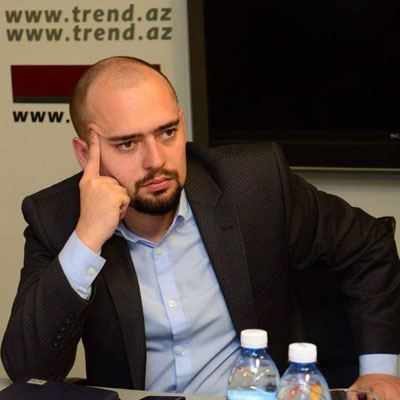BAKU, Azerbaijan, June 7. A new world order is being formed right now. The fighting in Ukraine has destroyed the traditional economy of Eurasia - and this is a time for both new challenges and new opportunities. Will it be possible to save the world economy from the consequences of the ongoing war, and what will be the role of Azerbaijan in the new economy of the continent?
Various meetings, negotiations and events are regularly held in Europe, where politicians and experts are trying to find a way out of the current situation.
The world's largest industry organization, the International Transport Forum (ITF), in its forecasts for 2023 notes that the collapse of traditional logistics in Eurasia can already be called one of the most severe long-term consequences of the war in Ukraine. ITF believes that not only European countries, but the whole world should join forces to establish alternative corridors, because the entire world economy is under threat.
This idea is especially actively promoted by the UK, which historically managed to become one of the world leaders thanks to its control over global trade routes. Trend managed to talk with the UK Secretary of State for Transport Mark Harper, at the ITF meeting.
"Well, one of the things that came out at the meeting today, tackling these issues, what's right that we do with the attack on Ukraine by Russia is exactly because of the massive impact of the war on transport infrastructure across the world, including in the Caspian area," he said.
The damage to the global transport infrastructure is really huge, so much so that no one even tries to calculate it. A huge flow of goods from East to West, from North to South and back traditionally, for more than a century, went through the territory of Russia (also through the territory of Ukraine). War and sanctions actually buried this route.
According to Harper, this is precisely the situation that experts in the field of global logistics are trying to figure out.
"So actually the whole point of the ITF is about having the countries work together, collaboratively to try and rebuild the infrastructure to help support both regional and global economies," he said.
Under the restoration of infrastructure, there are two most important areas at once. Firstly, of course, this is a huge amount of work to be done in Ukraine after the end of hostilities - after all, this country acts as a transit point not only for the Russian Federation. Before the start of the war, Ukrainian ports were among the largest on the Black Sea. Secondly, the restoration of infrastructure is one of the most important aspects for almost all countries that are on the so-called Middle Corridor, one of the most important transport routes of recent times.
Middle Corridor leads from China to the countries of Central Asia, and then through the Caspian region to Europe. Moreover, for obvious reasons, the only real route of this corridor passes through Azerbaijan. Carrying cargo from Central Asia around the Caspian Sea is a dubious pleasure, because it will have to be done either through Russia or through Iran.
Thus, it is Azerbaijan that has now become the key country through which most of the cargo that was previously sent through Russia via land routes will have to go.
Harper agrees that the Middle Corridor has great potential and adds that it is a "global issue".
"Infrastructure has massively grown for global economy. And this is in line with our efforts: we are focused on developing connectivity and infrastructure globally," he said.
Infrastructure is a key challenge for the Caspian countries. Azerbaijan, thanks to the policy pursued by President Ilham Aliyev, thought about the need to increase its transit potential many years ago. The customs infrastructure was modernized, ports and shipbuilding enterprises were built, the entire railway network and highways were renovated and reconstructed, both in the direction of Georgia and in the direction of Russia and Iran.
Against this background, the similar infrastructure of other Caspian countries is in a much less developed state. As a result, when the war in Ukraine put Eurasia in the face of a transit catastrophe, Azerbaijan was not only ready for a new challenge, but was already actively promoting its projects, which are now saving the situation - of course, we are talking about the Baku-Tbilisi-Kars, and about Southern Gas Corridor and many other initiatives of our country.
The strategy of President Ilham Aliyev to expand the transit potential of Azerbaijan was ahead of its time, becoming more relevant today than ever: suffice it to say that over the past year, the volume of cargo transshipment through Azerbaijan has tripled.
Transport corridors have turned into a separate kind of valuable resource, like oil or gas. As in ancient times, countries at the crossroads of trade routes have received fantastic opportunities for development today, because the search for new transit routes has become one of the most important issues for both Europe and Asia.
Various meetings and conferences are regularly held where logistics specialists, experts and political leaders are trying to draw a new logistics map of Eurasia. In this sense, Azerbaijan is one of those countries that are not just lucky with the geography where the North-South and East-West corridors intersect. Thanks to the efforts of President Ilham Aliyev, Azerbaijan was able to assess its own potential earlier than many and be ready for this new geopolitical reality.






